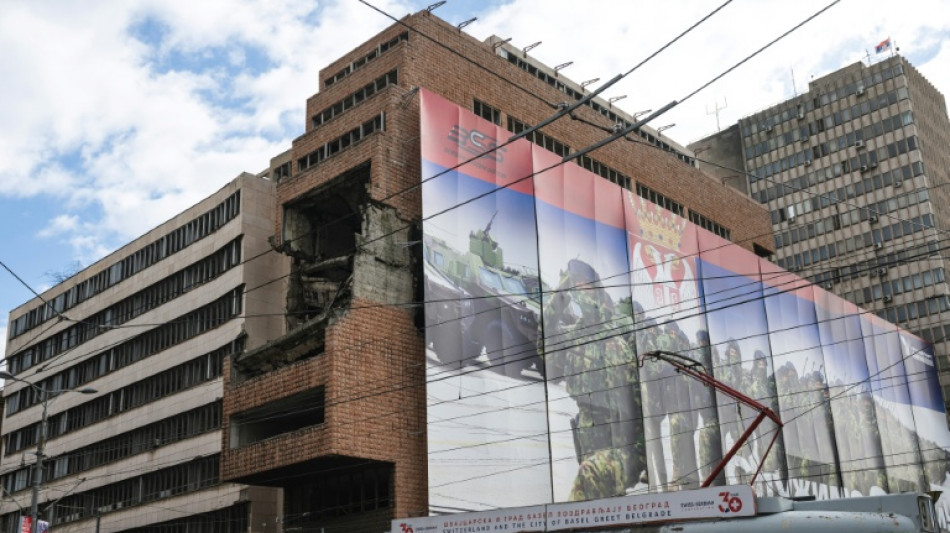
Serbia fast-tracks army HQ demolition for Trump family hotel

Serbia's parliament on Friday moved to fast-track the demolition of the bombed-out Yugoslav Army headquarters in central Belgrade, the site of a proposed luxury hotel backed by Donald Trump's son-in-law Jared Kushner.
The redevelopment is particularly sensitive in Serbia as the mid-20th-century modernist complex was partly destroyed during NATO's 1999 bombing campaign that ended the Kosovo war.
The public is divided over plans linked to Kushner's Miami-based investment firm, Affinity Partners, to redevelop the site into a high-rise hotel.
Affinity Partners signed a 99-year land deal with the Serbian government last year to redevelop the site, shortly after its "cultural asset" status was revoked.
The project stalled in May as suspicions grew that a public official had forged documents used to lift the site's protection -- investigations into the allegations are still going on.
But a special law voted through parliament on Friday and earlier published on the parliament's website classifies the redevelopment as urgent, which would require state institutions to issue permits and approvals without delay.
Lawmakers backed the move with 130 votes in favour and 40 against.
President Aleksandar Vucic, who has hosted Kushner several times in Belgrade, has given his personal support to the scheme.
One of Affinity's partners in the project is UAE company Eagle Hills, which was connected to the redevelopment of a large part of Belgrade's riverfront -- a scheme that triggered a public outcry in 2016.
"The General Staff building has been bombed and left in ruins for 26 years," Miljenko Jovanov, a lawmaker from Vucic's Serbian Progressive Party, told parliament during the debate this week.
Jovanov said he supported "good relations with the US, which many try to hinder".
Opposition Green-Left Front MP Radomir Lazovic responded by accusing the government of trying to "flatten" the army headquarters, and proceed under the false pretence that the hotel development was of "national interest".
Experts have called for the dilapidated building to be preserved both as a memorial and for its cultural value.
"In front of us stands a unique architectural and urban masterpiece," Miljan Salata, an architect and member of the Association of Architects of Serbia, told a press conference outside the building earlier this week.
"This building is safe, can be reconstructed, and should remain in public use as a memorial to the victims of NATO's bombing," he added.
Estela Radonjic Zivkov, a heritage expert from Serbia's Institute for the Protection of Cultural Monuments, said the law set a "dangerous precedent" of allowing monuments to be stripped of protection, sold, and demolished.
Vucic is already under pressure, with continuing fallout from a fatal accident at a newly renovated train station last year that many blamed on government corruption.
Initial outrage over the accident in Novi Sad morphed into an anti-corruption movement, and last week tens of thousands of protesters gathered to mark the first anniversary.
A small crowd of protesters gathered outside parliament during Friday's vote, supporting a mother of one of the Novi Sad victims who has been on hunger strike since Sunday to demand accountability for the deaths of her son and 15 others killed in the tragedy.
W.Thompson--SFF

 London
London

 Manchester
Manchester
 Glasgow
Glasgow
 Dublin
Dublin
 Belfast
Belfast
 Washington
Washington
 Denver
Denver
 Atlanta
Atlanta
 Dallas
Dallas
 Houston Texas
Houston Texas
 New Orleans
New Orleans
 El Paso
El Paso
 Phoenix
Phoenix
 Los Angeles
Los Angeles



